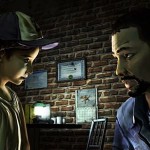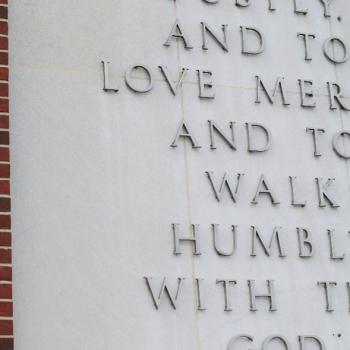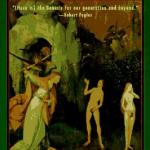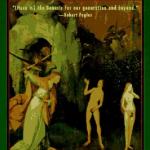Jason Morehead explores the recollections of childhood memories found in the music of Sam Billen.
Last month, Sam Billen released his latest album, Places, a collection of heartfelt, softly atmospheric pop songs. Billen wears his heart on his sleeve throughout the album: Its songs are semi-autobiographical, the lyrics culled from various childhood memories ranging from the mundane (staying home sick from school) to melancholy (the death of his mother). Whereas his previous album, 2009’s Headphones & Cellphones (my review) was a bit quirkier and more offbeat, Places is quite a bit slower and subtler. This, when paired with the songs’ deeply personal nature, can make the album a bit obtuse at times.
I was pleased to have the opportunity to explore Billen’s music and mindset in an interview he granted me. Billen says the difference between the two albums reflects his growth as an artist:
“One way that I like to look at it is that with Headphones & Cellphones, I was writing songs that I wanted to write and having fun with it, but at the same time, I think in the back of my mind, I was always trying to write something marketable. Trying to write something that people wanted to hear rather than writing things that I wanted to write. I feel like that was a big difference. This time, I feel like I really went out of my way just to not really worry what was expected of me. In the first versions of some of the songs, I had some people really close to me, I would share it with them, and they’d be like, ‘It doesn’t do much for me. It’s just really slow.’ But I was OK hearing that. And I just had to push forward and say, ‘Hey, this is where I’m at right now, this is what I want to write.’ ”
The birth of his daughter, now 3 years old, was a big influence on his artistic growth. Seeing her experience the newness of life made life new for him too:
“I try to look at things through her eyes, and I remember little things here and there. I remember sitting in elementary school and looking out the window, and how wild my imagination was. Or how I just took everything in. So I guess you could say that I tried to capture some of that in this album… My daughter is a huge inspiration, and I feel like this album is such an effort on my part to talk about my childhood and that’s a straight inspiration from my daughter. Just watching her wonder at things inspires me every day and helps push me to stay in touch with something deeper and real that I feel like I lose touch with as I spend 20 hours on Facebook, read the news, etc.”
This desire to recapture a sense of youthful innocence is particularly prominent on “Hands,” one of highlights on Places. It begins with Billen pondering, “Where does time go? Where is time floating to?” against a backdrop of sparse piano and otherworldly drones, before he softly intones: “I want to be young again.” The desire for innocence is the song’s — and by extension, the album’s — prevailing theme. I asked Billen to comment on the ethereal nature of this song in particular. He explains:
“I put a lot of time into that song, into the lyrics and the melody. And as I was writing it, that was a big part of it. A lot of it’s tied to the innocence of being a child. You get older and all these things creep in like politics or philosophy and things were so much more black and white as a child in terms of knowing right and wrong, having a super-solid foundation and convictions. A lot of that was tied to my family, and when my mom died when I was 18, things changed. A lot of things in our life changed a lot, and we found peace through that experience and we’re still coping with it. As a child I felt like things were together, and they fell apart when she died.”
The death of Billen’s mother has been an often-present factor in his music. Several years ago, he released Death of a Saint, a collection of solo piano pieces that were composed to help deal with her passing. And she figures prominently on Places. For example, “A Light Went On” — a lovely piece originally recorded for one of Billen’s many Christmas albums — recounts an experience that Billen had as a high schooler that embodies the simple joy of spending time with someone you love:
“On ‘A Light Went On,’ I talk about staying home from school one day and basically hanging Christmas decorations with my mom, and that’s an experience I had with my mom that I never, ever told anyone about. I think it was just months before she died, I think I was a senior in high school, and it was just one of those experiences… even as I wrote it, it brought me to tears because it was one of the things that is so important. But telling someone, other than in a song, it just sounds like another day. Looking back on it, it’s huge for me.”
Family as a whole has figured heavily in Billen’s music. I first became aware of his music when he was in The Billions with his brother Dan. Before calling it quits around 2005, they recorded several solid albums of heartfelt indie-pop a la Weezer, Starflyer 59, and The Flaming Lips. Even though The Billions are no more, Sam and his brother and father occasionally perform as The Billen Brothers at weddings and holiday parties, something else that brings back childhood memories.
“My brother was in high school and he and my dad would play at a semi-fancy restaurant in Topeka where we were growing up. My mom and I would go and watch them play, and I wanted so bad to be a part of it but I was always just too young. So it’s sort of dream come true for me to be playing with them now. And the chemistry is pretty unreal in terms of the three of us knowing when to change, when to stop the song, or who takes what harmony. A lot of times, we don’t even talk about it: We’ll just end up doing three-part harmonies without any planning and it just works.”
Another influence on Billen’s music comes from a more exotic source: “Japanese music is a huge influence, not only to me musically as an indie artist, but just as a dad or as a normal dude,” Billen explains. Snippets of vaguely oriental melodies and timbres drift through Places, specifically “An Interference” and the delicate, pensive instrumental remake of “Choices” (which originally appeared on Headphones & Cellphones). The result sounds like Sufjan Stevens were he more influenced by Ryuichi Sakamoto than minimalist composer Steve Reich.
Billen admits that his love for Japanese music is driven not simply by its exotic-ness but by the way it taps into something deeper and truer for him: “There’s something that they capture [in Japanese and even Okinawan traditional music], in certain chords and things they play, across genres, other than J-Pop of course. But even then, sometimes, in J-Pop, you catch a little bit, where they’ve held onto something really real. And aside from music altogether, Japan, as a country, as a culture, has played a really huge role in my life over the last 10–15 years.”
There’s no denying the definite spiritual aspect to Billen’s songs. Though he rarely spells it out, it’s obvious that his musical recollections of childhood memories and whatnot are more than mere nostalgic exercises. For Billen, they point toward a deeper truth. On “The Secrets of the Universe,” Billen makes a simple declaration of faith: “I know You’re there.” It’s a moment that arrives after the preceding songs’ reflection and is perhaps possible only because of the reflection. Billen is a Christian but is quick to point out that he’s not a preacher and that he’s never been comfortable with being didactic in his songs. It’s a stance that has got him in trouble before: Several years ago, after explaining his reluctance to use music as a “preaching” platform, he received a lengthy letter from a woman who rebuked him and told him to not be ashamed of his faith. Faith remains a deeply personal thing for him, something that he feels more comfortable discussing person-to-person.
During our conversation, he mentioned Terrence Malick’s The Tree of Life, a movie in which the main character reminisces about his childhood, and specifically, his dead brother. A good portion of the movie is spent looking back on the “innocence” of childhood, but its final movement looks forward to an eschatological moment of reunion with what has been lost. The more I listen to Places, the more I suspect something similar is occurring in Billen’s music, regardless of whether he did it consciously or not. There’s the sense, the hope, that all of those things that he remembers are not truly lost, but will someday return. The innocence will be recaptured.
Illustration courtesy of Seth T. Hahne. Check out his graphic novel and comic review site, Good Ok Bad.
















